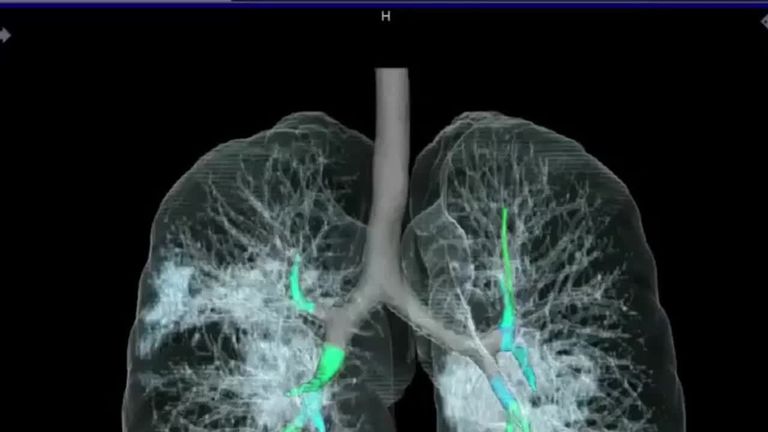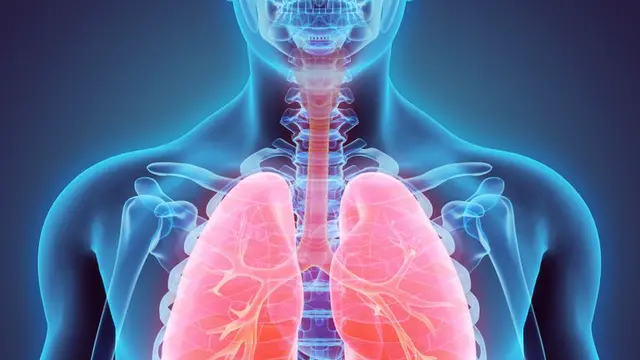A number of people with coronavirus who were admitted to hospital had blood clots in their lungs, a study has found.
Researchers found infections caused by
coronavirus
are associated with a high incidence of venous thromboembolism - where blood clots form in the deep veins of the groin, arm, and leg and can travel to the lungs, causing blockages.
Experts at the Brighton and Sussex Medical School (BSMS) looked at 274 cases of
COVID-19
patients who were admitted to hospital and found 21 (7.7%) of them were diagnosed with venous thromboembolism, while blood clots were seen in 16 (76.2%) of those cases.

March: This is how COVID-19 can damage your lungs
The study has been published in the Clinical Medical Journal and was carried out at the Brighton and Sussex University Hospitals NHS Trust, and two more acute sites in the south of England.
The study also showed that a D-dimer blood test, which finds minuscule protein fragments from dissolved blood clots was useful in seeking those patients at the highest risk of the condition.
Lead author Dr Chi Eziefula, a senior lecturer in infection at BSMS, said: "Identifying which patients have a risk of, and clinical evidence of, a venous thromboembolism in COVID-19 is highly important for two reasons.
"Firstly, because venous thromboembolism is linked to a risk of death, and secondly because it is treatable with anticoagulant medications."
There are now calls from the team for urgent clinical trials to see if medicines that can help prevent blood clots, known as anticoagulants, could help stop COVID-19 deaths.
Dr Tim Chevassut, a reader in haematology at BSMS and one of the study authors, said: "This study signals the importance of further research to explore the pathological mechanisms specific to COVID-19.
**:: Listen to the Daily podcast on **
Apple Podcasts
**, Google Podcasts
, Spotify
, Spreaker
**
"It also highlights the urgent need for clinical trials to evaluate the role of anticoagulation treatment for the prevention of deaths and morbidity from COVID-19 infection."
Another study by a team at Royal Brompton Hospital found blood-thinning drugs could be used to help save the lives of coronavirus patients, but added a blanket use of the drugs would not be appropriate and treatment would have to start very early for it to be effective.
 简体中文
简体中文













